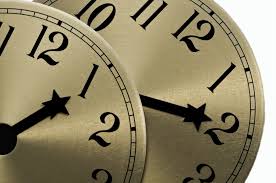Daylight Savings Time Leads to an Increase in Traffic Accidents
 After the long, hard winter this past season, signs of Spring are particularly welcomed. March 9th, 2014, where clocks “Spring Forward” into Daylight Savings time, is one of those first signs of Spring, heralding the beginning of the end for 2014’s record-breaking winter weather. But before the celebrating begins, a word of caution is in order as the time change can result in one of the most dangerous periods of the year, particularly for traffic accidents.
After the long, hard winter this past season, signs of Spring are particularly welcomed. March 9th, 2014, where clocks “Spring Forward” into Daylight Savings time, is one of those first signs of Spring, heralding the beginning of the end for 2014’s record-breaking winter weather. But before the celebrating begins, a word of caution is in order as the time change can result in one of the most dangerous periods of the year, particularly for traffic accidents.
The reason is that an hour of less sleep, combined with increased darkness in the morning, can mimic the biological symptoms of jet lag, including reduced energy, reduced mental alertness, and a pervasive feeling of fatigue. Given time, the body adjusts. But there are a few steps that can be taken in the meantime to stay as safe as possible so that you can enjoy the warm weather to come:
- Try to get immediate exposure to as much sun as possible in the morning. Have breakfast in front of a window, or go for a quick walk around the block. This can cue your internal clock to synchronize to the time change.
- Be sure to allow extra time to get where you’re going so you can concentrate on defensive driving. Keep in mind that other drivers may be especially sleepy over the coming days. Driving skills and reaction time may not be up to par. Additionally, others may not yet have changed the clocks in their homes/cars and could be in a rush to make up lost time creating hazards on the road.
- Exercise. Working out releases serotonin, a brain chemical that can help our bodies adjust. Exercising outdoors can be especially helpful, as the sun can boost the brain’s serotonin levels also. Try to get in a workout before 4 or 5pm as the boost in metabolic activity can hinder sleep later in the day.
- Avoid napping. This can sabotage your efforts to get to sleep on time. If you absolutely must grab a few z’s, do it earlier in the day and try keeping it to 20 minutes or less.
- Don’t imbibe. Although it may initially make you drowsy, drinking actually reduces REM sleep, which is the most restorative kind of sleep.
If you survived the winter weather of 2014, use these tips to keep safe and healthy for the Spring and Summer ahead!
